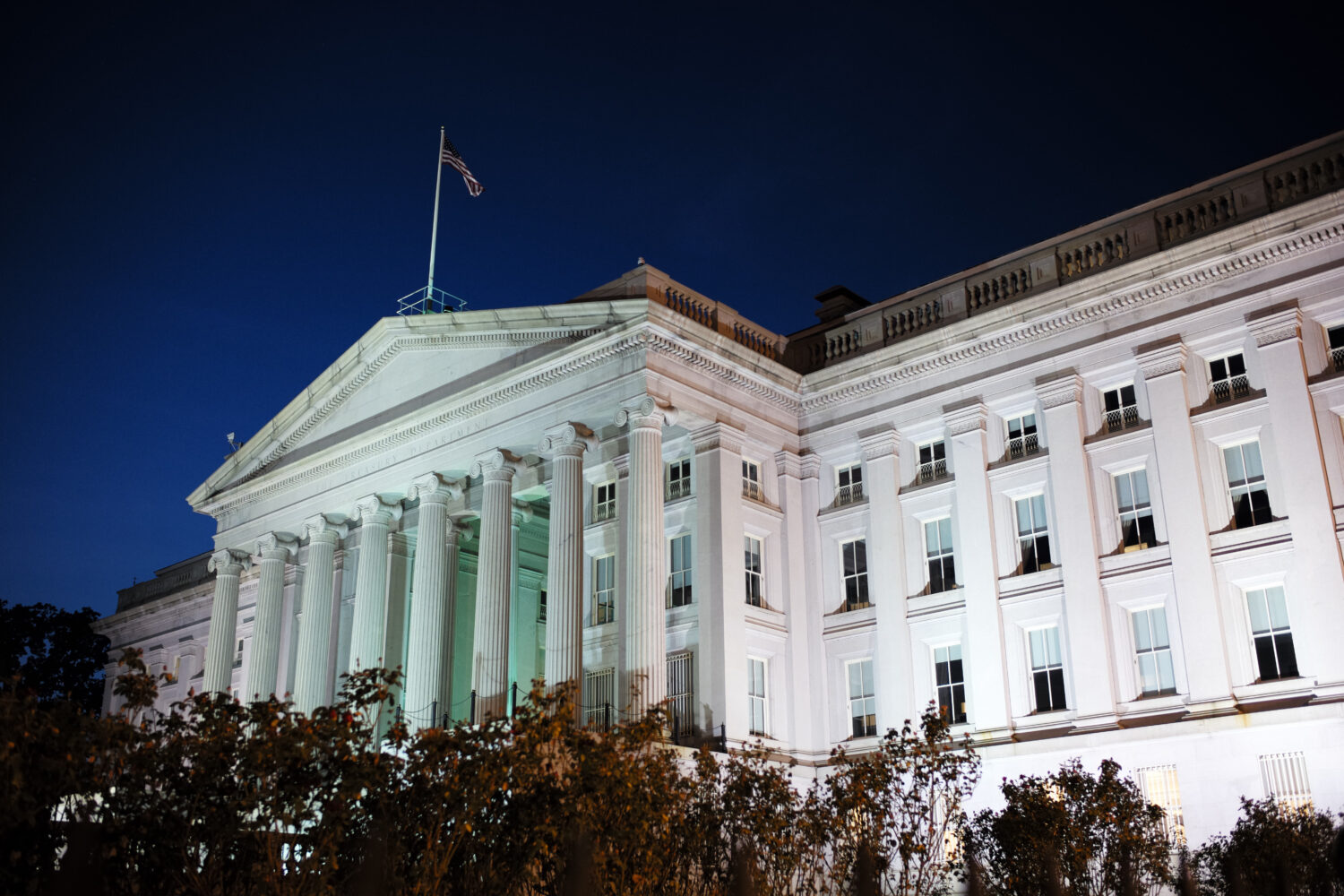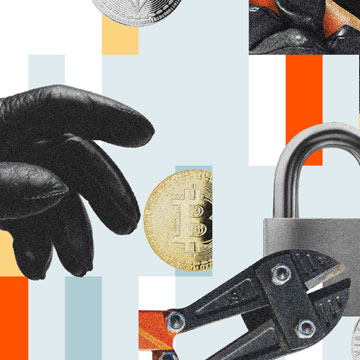On June 14, 2024, the United States Department of the Treasury’s Office of Foreign Assets Control (OFAC) sanctioned the Nordic Resistance Movement as a Specially Designated Global Terrorist (SDGT) group, and three individuals linked to the group, Leif Robert Eklund (Sweden), Par Oberg (Sweden), and Tor Fredrik Vejdeland (Sweden — the new leader of the movement as of March 2024), for their involvement in violent extremism and terrorism. As we’ll explore below, the Nordic Resistance Movement has accepted donations in crypto to fund its operations for almost a decade.
What is the Nordic Resistance Movement?
According to their website, the Nordic Resistance Movement is a pan-Nordic group advocating for a Nordic ethnostate, a unified state comprising Sweden, Norway, Denmark, Finland, and Iceland. This organization was founded in Sweden in 1997 and is known for supporting white supremacist and anti-semitic ideas. In 2020, the group was banned in Finland on the grounds that its activities were “significantly contrary to law.”
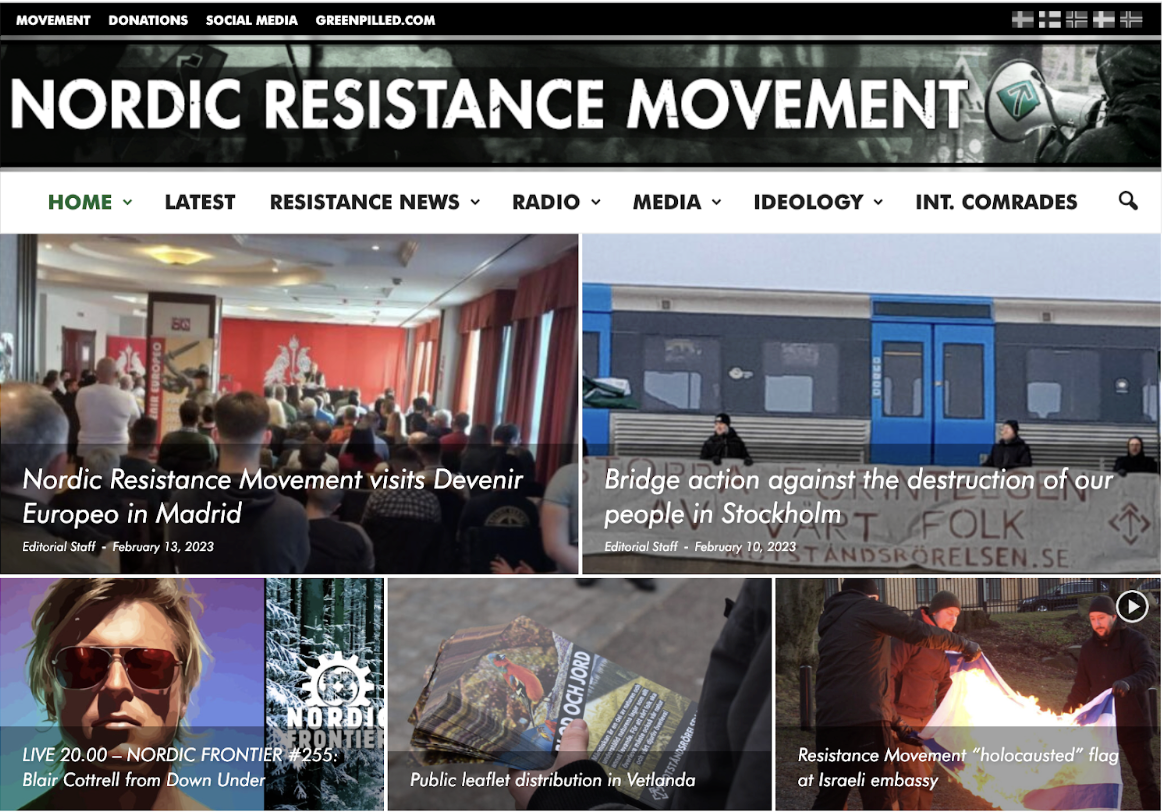
Analyzing the Nordic Resistance Movement’s on-chain activity
The Nordic Resistance Movement and its affiliates were early adopters of cryptocurrency, consistently promoting crypto addresses for donation; we have been observing their activity since as early as 2015. As a result of holding Bitcoin for the long term in their affiliated wallets, they more than doubled an original position of approximately $92,000.

The exposure wheels in Chainalysis Crypto Investigations show that the group received crypto worth approximately $92k over the course of nearly 9 years, based on the combined value at the time of the transactions. As the group sent those funds — mostly to exchanges, presumably to cash out their crypto — the combined value was more than $200k.
The organization also publicly noted that they accept cryptocurrency donations to fund their activities due to being unable to operate traditional bank accounts.
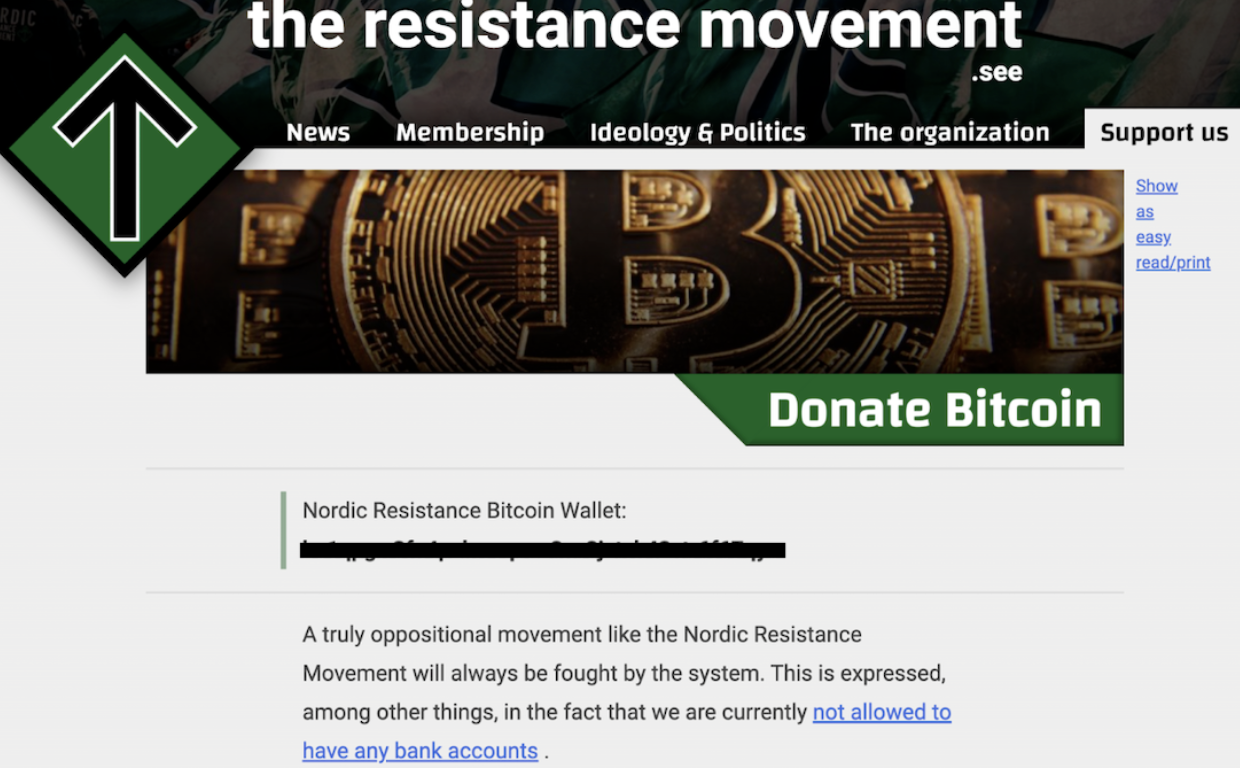
Branches in Norway, Denmark, Iceland, Sweden and Finland accepted donations in Bitcoin, Ethereum, Litecoin, Tether, Cosmos, Monero, Cardano, and other cryptocurrencies.
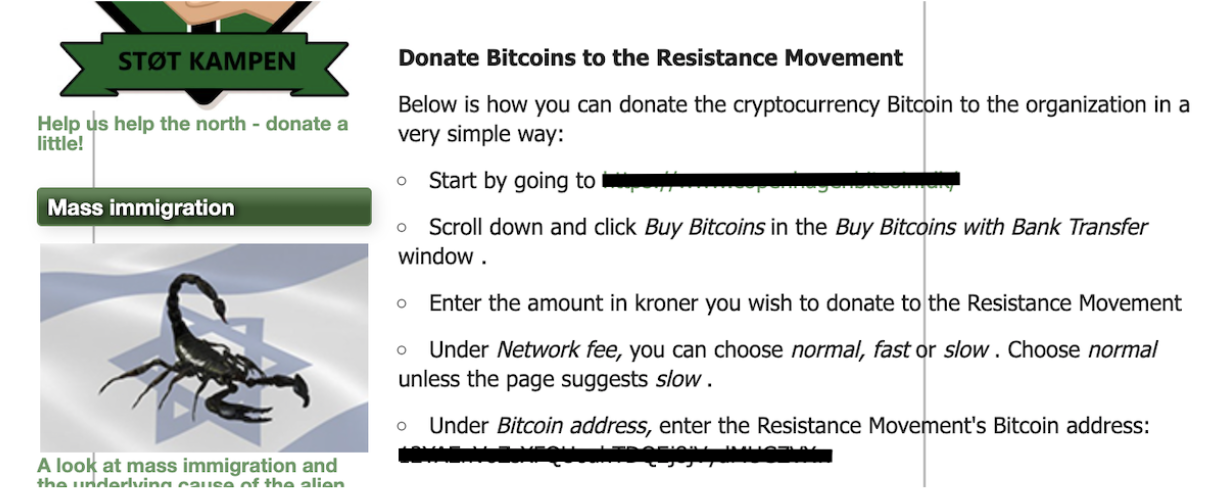
In the Chainalysis Reactor graph below, we see that addresses operated by the Nordic Resistance Movement have received several thousand dollars’ worth of donations from users at mainstream exchanges as well as from a mining pool, after which funds moved to different mainstream exchanges to cash out.
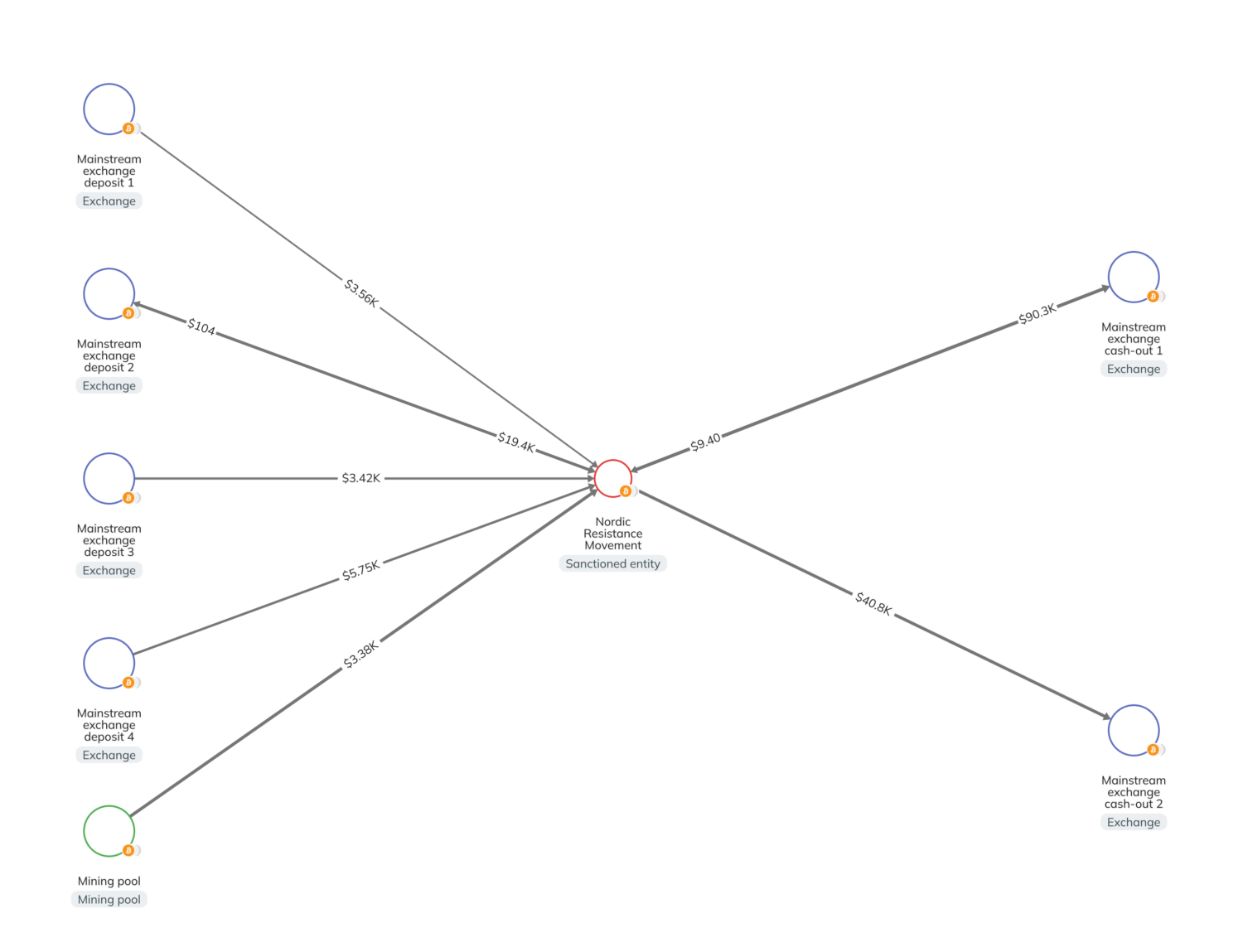
Monitoring terrorism funded by crypto
OFAC’s designations today illustrate its commitment to safeguarding United States citizens from terrorist organizations and their affiliates, and monitoring those who accept crypto donations to fund violent activities. Following these sanctions, the Nordic Resistance Movement — specifically, the organization’s Denmark branch — appears to have removed all crypto addresses from certain website pages, but we have still tracked and labeled the relevant addresses as associated with the sanctioned entities in our product suite.
This website contains links to third-party sites that are not under the control of Chainalysis, Inc. or its affiliates (collectively “Chainalysis”). Access to such information does not imply association with, endorsement of, approval of, or recommendation by Chainalysis of the site or its operators, and Chainalysis is not responsible for the products, services, or other content hosted therein.
This material is for informational purposes only, and is not intended to provide legal, tax, financial, or investment advice. Recipients should consult their own advisors before making these types of decisions. Chainalysis has no responsibility or liability for any decision made or any other acts or omissions in connection with Recipient’s use of this material.
Chainalysis does not guarantee or warrant the accuracy, completeness, timeliness, suitability or validity of the information in this report and will not be responsible for any claim attributable to errors, omissions, or other inaccuracies of any part of such material.
